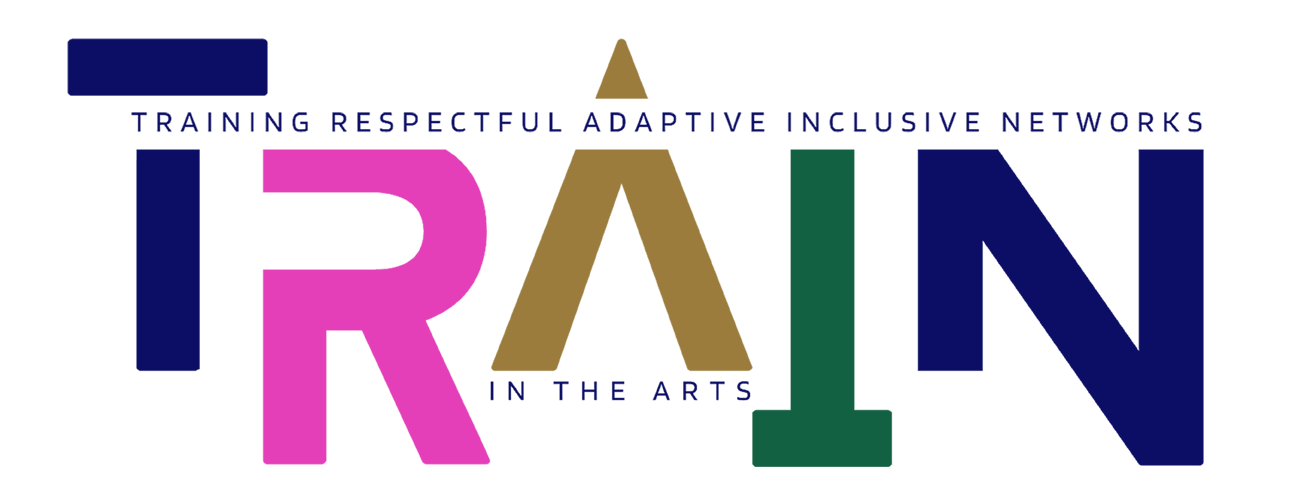
Ethical Practices in the Arts
Meet the facilitators
Get to know Taiwo Afolabi
 Taiwo Afolabi is a theatre-maker, scholar, theatre manager and entrepreneur. His interest is in amplifying voices and experiences; and recentering governance models, strategies and systems on the margin through the lens of decolonization, equity and anti-oppressive approaches. His experience in over a dozen countries across four continents in a variety of contexts focused on socially engaged and community-based creative practice for transformational change. Through storytelling and devised theatre, he works with communities on social issues pertinent to them and his research continues to advance broad-minded thinking within the art and culture sector. He is the Canada Research Chair in Socially Engaged Theatre and serves as the Director of the Centre for Socially Engaged Theatre (C-SET) at the University of Regina. He is a Senior Research Associate at the University of Johannesburg in South Africa and the founding director of Theatre Emissary International (TEMi) in Nigeria and Canada.
Taiwo Afolabi is a theatre-maker, scholar, theatre manager and entrepreneur. His interest is in amplifying voices and experiences; and recentering governance models, strategies and systems on the margin through the lens of decolonization, equity and anti-oppressive approaches. His experience in over a dozen countries across four continents in a variety of contexts focused on socially engaged and community-based creative practice for transformational change. Through storytelling and devised theatre, he works with communities on social issues pertinent to them and his research continues to advance broad-minded thinking within the art and culture sector. He is the Canada Research Chair in Socially Engaged Theatre and serves as the Director of the Centre for Socially Engaged Theatre (C-SET) at the University of Regina. He is a Senior Research Associate at the University of Johannesburg in South Africa and the founding director of Theatre Emissary International (TEMi) in Nigeria and Canada.
Get to know Jemma Llewellyn
 Jemma Llewellyn is a PhD student at the University of Guelph studying Critical Studies in Improvisation. An applied theatre practitioner from Wales, UK, her research, practice, and scholarship focus on amplifying youth voices through adult allyship. Her research project titled Staging Digital Youth: Allyship, Activism and Art, uses youth-led participatory action research to investigate improvised multimodal activist performances online. By inviting adults in positions of educational, governmental, and parental power to participate in research-based theatre, the project aims to build a creative dialogical space for youth and adults to collaborate and respond to emerging calls to action. She is a non-resident research associate at the Centre for Socially Engaged Theatre at the University of Regina.
Jemma Llewellyn is a PhD student at the University of Guelph studying Critical Studies in Improvisation. An applied theatre practitioner from Wales, UK, her research, practice, and scholarship focus on amplifying youth voices through adult allyship. Her research project titled Staging Digital Youth: Allyship, Activism and Art, uses youth-led participatory action research to investigate improvised multimodal activist performances online. By inviting adults in positions of educational, governmental, and parental power to participate in research-based theatre, the project aims to build a creative dialogical space for youth and adults to collaborate and respond to emerging calls to action. She is a non-resident research associate at the Centre for Socially Engaged Theatre at the University of Regina.
Workshops
Summary
EPA is a seven-part workshop series that focuses on the practice of ethics in the communities we find ourselves in as artists. Facilitators along with their guest speakers will foster a space of radical empathy and generosity as a way to exemplify promising ethical practices in the arts. Through multiple learning strategies, including podcasts and short videos (recorded with the guests), workbooks and virtual live discussions, participants will be fully immersed in reflective practices that can be applied in their daily work environment.
Ethics is...
Click here to watch the video now.
Click here to listen to the podcast now.
Summary:
This first workshop gives an overview of the workshop series by introducing participants to ethical paradigms (Questioning, Critque, Justice, Care, Profession, Service and Engagement) within the framework of axiology (study of values) and ethics as a political act.
Ethical Questioning
Click here to watch the video now.
Click here to listen to the podcast now.
Summary:
Offers a series of ethical questions through the lens of positionality, power, and privilage. Participants will be invited to reflect on their artistic practice and community engagement processes, their own shifting identities as practitioners, and the socio-political, economic and cultural realities and challenges that rise up when implementing their art practices.
Ethics of Critique
Click here to watch the video now.
Click here to listen to the podcast now.
Summary:
Focuses on the critique of the status quo in arts practices. Participants will be asked to consider possible alternative practices that amplify the voices of those that are equity-deserving and how arts practices might challenge societal thoughts, practices, and leadership.
Ethics of Justice
Click here to watch the video now.
Click here to listen to the podcast now.
Summary:
Explores (un)ethical practice in society that perpetuates inequities within community engaged arts practices including democracy and morals. Exploring various stages of the community engagement process participants, through reflexivity and praxis, will consider the meaning and implications of taking a social justice approach to arts and community.
Ethics of Care
Click here to watch the video now.
Click here to listen to the podcast now.
Summary:
Examines both individual needs and the relationship to larger groups. Exemplified through different art practices in various community settings, this workshop invites participants to consider key concepts and practices in reciprocity, responsibility, relationality, and accountability.
Ethics of Profession
Click here to watch the video now.
Click here to listen to the podcast now.
Summary:
Is designed to prepare oneself with the skills, knowledge, and experience to adapt to difference, recognize societal oppression, and respond to biases. Participants will be asked to consider the ways in which an affect-driven profession can build community with a deep sense of connection while understanding of the demands of the arts profession.
Ethics of Service and Engagement
Click here to download the Ethical Practices in the Arts Workbook now.
Summary:
Considers the implications of viewing the arts through the lens of service and engagement. Key ethical concepts including ethnographic refusal, and control over outputs, will be reviewed in this final workshop, through a discussion on the principles of knowledge production and mobilization.
T.R.A.I.N was made possible by the Government of Canada through the Canadian Heritage Performing Arts Workers Resilience Fund.
Workshops took place September 2022 – March 2023, live and asynchronous, and delivered in English, French, and ASL and were free to join.

